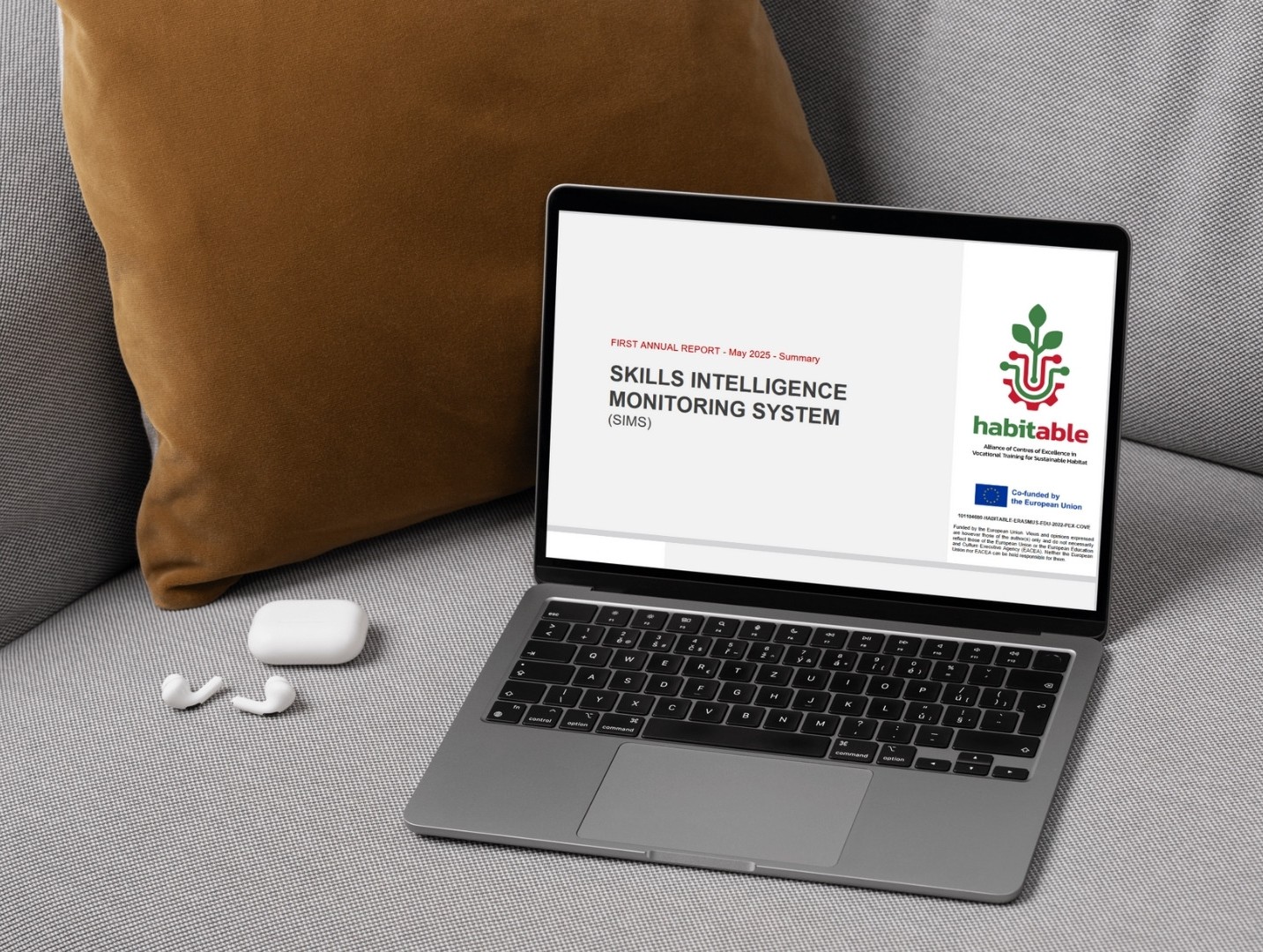The HABITABLE project’s Skills Intelligence Monitoring System (SIMS) has delivered its first major results, offering valuable insights into current and future skill demands in two key sectors: green transition in manufacturing and lightweight and wood construction. This milestone represents a fundamental step toward bridging the gap between Vocational Education and Training (VET) and the evolving needs of the labour market in the Habitat sector.
In the manufacturing sector, SIMS identified 184 green-related skills and competences spread across 33 occupations. These include abilities such as assessing environmental impact, using sustainable materials, promoting environmental awareness, and ensuring compliance with environmental legislation. Encouragingly, the analysis revealed that existing training provision already covers all these identified skills gaps. A total of 99 training programmes addressing 204 relevant skills were mapped, confirming the strong alignment between current VET offerings and the demands of the green transition in industry.
The study also explored the lightweight and wood construction sector. Here, SIMS identified 208 necessary skills linked to 33 occupations, and 96 training programmes covering 312 skills across 74 occupations. Among the most frequently required competences are integrating building requirements into design processes, using technical drawing software, and operating 3D modelling tools. While most skills are already being addressed in training—277 out of 346 identified—the remaining 69 gaps highlight areas for improvement and innovation in course design.
These findings will directly inform two of the project’s flagship digital tools: the Training Offer Panel (TOP HABITAT) and the Sector Map of Jobs and Skills, helping stakeholders identify training needs, design more relevant learning pathways, and strengthen the strategic role of VET in supporting green and digital transitions.
The SIMS methodology, based on data-driven sectorial monitoring, is proving essential for guiding policy decisions, designing targeted training offers, and ensuring the workforce is equipped with the right competences for a sustainable future. These first results highlight how VET systems can become more responsive, agile, and aligned with the transformations shaping the European Habitat sector.
To learn more about the Skills Intelligence Monitoring System and its initial findings, visit: https://habitable-cove.eu/smart-sip/smart-info/monitoring-system/
